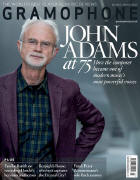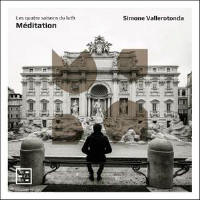Texte paru dans: / Appeared in: |
|
|
Outil de traduction |
|
|
Reviewer:
William Yeoman Italian lutenist Simone Vallerotonda, who admits philosophy ‘has been his passion and salvation’, shares with fellow gutpluckers such as Lukas Henning a penchant for extramusical esoterica. In Henning’s case it is the Tarot; in Vallerotonda’s, ‘the four humours of Hippocrates, as developed in 17th-century philosophical thought’. Vallerotonda’s recital thus comprises four suites, drawing on the rarefied repertoire of 17th-century French lute music, assembled by him according to ‘humour, season, colour and key’. A minimalist Quattro stagioni, if you like, yet every bit as compelling as Vivaldi’s by virtue of the oddness, to our ears, of the music; of the titles of some of the pieces; of Vallerotonda’s juxtapositions; and, not least, of his extraordinary playing. Each suite is a variation on the at-this-period-yet-to-be-codified preludeallemande-courante-sarabande-chaconne pattern. Their expressive centres are the allemandes, two of which are tombeaux, both by the best-represented composerlutenist on the recording, Robert de Visée. There are also denser interventions, two in new arrangements, by clavecinistes François Couperin and Rameau. Most of the pieces are, however, ‘often made up of very few notes’, thus leaving plenty of room for Vallerotonda’s, and the listener’s, metaphysical ruminations. This is evident from the outset, with Winter’s Prélude, by Charles Mouton: spacious and unmeasured; in Vallerotonda’s hands more provocation than invitation. The suite’s concluding chaconne, Jacques Gallot’s La comete, is strange, modern, oneiric. Summer brings languid strumming and garlands of ornament such as is found in Germain Pinel’s L’enchantement; Autumn’s wistfulness is exemplified by Gallot’s L’altesse royale; Spring’s hopes tempered by de Visée’s Tombeau du vieux Gallot. All of which Vallerotonda renders as music heard like snatches of conversation in a darkened corridor, which is the past. This is imaginative, thoughtful music-making, which asks a lot of the listener but repays their efforts a hundredfold. |
|




